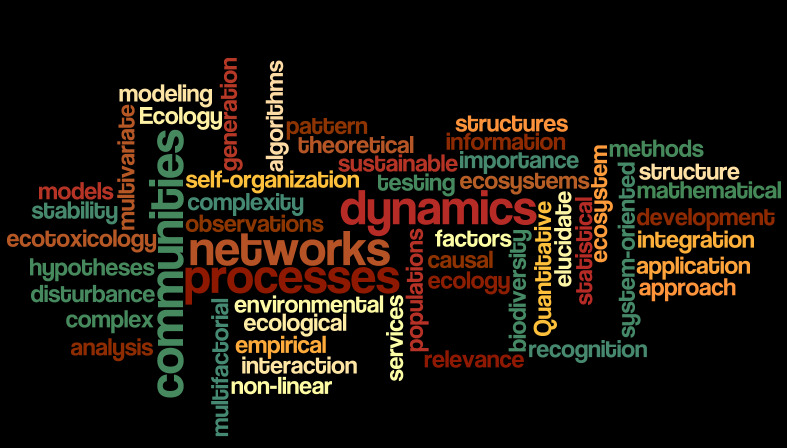



|

|

|
|
Detection of Environmental Pollution based on Behavioral Time-series Data from Danio rerio Tracking Experiments |
This page was carefully designed to make it distraction free and most accessible to individuals with disabilities following the Web Content Accessibility Guidelines (WCAG). Please report any problems. The content is optimized for text-based browsing with Lynx or w3m and free of cookies and javascript. Last update 26.09.2023. Mailto: RiO
Behavior is what ultimately connects an organism to its environment. It integrates internal stimuli of the organism triggered by physiological and biochemical processes and stimuli from the environment. Behavioral disturbances can affect organisms, populations, and entire food webs in unpredictable ways. Changes in natural behaviors, can have direct or indirect effects of great significance. These changes can lead to impaired individual fitness, impaired population dynamics, or impaired community structures, thus promoting ecosystem disturbances. For this reason, behavior-based bioassays have high evidential value in detecting environmentally relevant toxins.
Danio rerio (zebrafish) is a well-established model organism in ecotoxicology and in neurotoxicity research and its nervous system is similar to that of mammals in many important aspects. Zebrafish larvae are widely used for neurotoxicity and drug efficacy studies and are also used to evaluate neurotoxicological effects of contaminants. One of the most important behavioral traits is the distinct locomotor response to a light stimulus, which can be quantified using the Light/Dark Transition Test (LDTT aka PMR).
In this project researchers from the Computational Ecotoxicology group at the Institute for Environmental Research (COPE), RWTH Aachen University develop an algorithm for the standardized and automatized statistical analysis of data from the LDTT/PMR with Danio rerio larvae using methods from multivariate statistics, machine learning and AI. The algorithm is intended to enable direct, automated analysis of LDTT/PMR data and the detection of behavioral, environmental toxicological effects directly from the raw data of the most common analytical systems. This is an important step towards using the test as a screening tool in various different application areas, such as consumer protection and neurotoxicological environmental research. In order to successfully establish the newly developed evaluation approaches in the practice of test application, it is necessary to develop a tool with an easily understandable interface to the raw data, which can be used by experimental biologists without explicit programming knowledge. The workflow should be easy to use and well documented so that the interpretation of results becomes as simple as possible.
With better statistics and efficient, streamlined data analysis, not only more sensitive analysis in the LDTT/PMR is possible, but also the advanced study of neurotoxic modes of action of chemicals and the application of the test to detect environmental toxicological effects based on detailed behavioral patterns. Given the large number of substances that remain to be tested for neurotoxic effects further development of the LDTT/PMR toward an automated but cost-effective high-throughput system makes this reaserch even more urgent. The developed algorithm will benefit different research areas, as it can be easily adapted to other test species, other bioanalytical systems, and different application areas (including drug discovery).

|
Sep. 2023: Jaqueline Lange finishes her Master thesis called “Non-linear dynamics in behavior of Danio rerio larvae in the light-dark transition test” |
Aug. 2023: Charline Marreiros finishes her Bachelor thesis called “Optimization of a deep learning approach to model time-series of Danio rerio larvae behavior in the light-dark transition test”.
Jul. 2023: Jaqueline Lange and Richard Ottermanns present the DILUTED project in an invited lecture called “Reconstruction of complex systems dynamics” in the course “Modelling of complex chemical reaction networks” by K.A. Heufer and M. Liauw at RWTH Aachen University.
Jun. 2023: The second progress report was finished.
Jun. 2023: Dr. Martin Gruhlke and Dr. Jan Borlinghaus from GENAWIF - Society for Natural Compound- and Drug Research join the team of cooperation partners.
May 2023: Charline Marreiros starts her Bachelor thesis called “Optimization of a deep learning approach to model time-series of Danio rerio larvae behavior in the light-dark transition test”.
May 2023: Luca Frings starts his Master thesis called: “Sensitivity analysis of an autocorrelation model for behavior time-series derived from the light/dark transition test with Danio rerio embryos to evaluate the biological relevance of the model parameters”.
Apr. 2023: Jaqueline Lange starts her Master thesis called “Non-linear dynamics in behavior of Danio rerio larvae in the light-dark transition test”.
Mar. 2023: The first project meeting took place online.
Mar. 2023: The first progress report was finished.
Mar. 2023: Katja Schröder presents PhD progress at the Computational Photobiology Lab meeting.
Jan. 2023: Project starts officially with kick-off meeting with the funding sponsor.
Dec. 2022: DILUTED homepage goes online (https://diluted.rwth-aachen.de).
Nov. 2022: The project gets officially funded for 2023 by the Verein des Hygiene-Instituts des Ruhrgebiets e.V., Gelsenkirchen, Germany.
Apr. 2022: Katja Schröder successfully applies for a RWTH Aachen University PhD funding and started her PhD thesis called: “Development of sensitive statistics for chemobehavioral profiling with zebrafish light/dark transition test data”.
Sep. 2021: Katja Schröder successfully finishes her Master thesis called “Application, advancement and automation of an existing algorithm for analysis of behavioural toxicity evaluated by the light/dark transition test with Danio rerio”.
Apr. 2020: Dominik Ziaja successfully finishes his Master thesis called “An implementation of a data processing workflow: Analyzing behavioural toxicity in light/dark Transition Tests with Danio rerio using multivariate statistics”.
Schröder K., Ottermanns R. (2023): Multivariate time-series analysis for sensitive evaluation of behavior data from the light/dark transition rest with zebrafish larvae. Oral presentation, SETAC 12th Young Environmental Scientists Meeting , 28. August - 01. September 2023, Landau, Germany.
Jaqueline Lange, Richard Ottermanns R. (2023): Reconstruction of complex systems dynamics. In: Heufer K.A., Liauw M: Modelling of complex chemical reaction networks. RWTH Aachen University. Invited lecture. 11.07.2023.
Katja Schröder: Progress report - Development of Sensitive Statistics for Chemobehavioural Profiling with Zebrafish light/dark Transition Test Data, Talk at the Computational Photobiology Lab Meeting 08.03.2023 and 1st project meeting 15.03.2023.
Katja Schröder: Introduction to Dissertation Project - Development of Sensitive Statistics for Chemobehavioural Profiling with Zebrafish light/dark Transition Test Data, COPE Tech Talk 21.06.2022.
Katja Schröder: Application, Advancement and Automation of an Existing Algorithm for Analysis of Behavioural Toxicity Evaluated by the Light/Dark Transition Test with Danio rerio, 27.04.2021
Katja Schröder: Application, advancement and automation of an existing algorithm for analysis of behavioural toxicity evaluated by the light/dark transition test with Danio rerio, COPE Tech Talk 06.11.2020.
Luca Frings (ongoing): Sensitivity analysis of an autocorrelation model for behavior time-series derived from the light/dark transition test with Danio rerio embryos to evaluate the biological relevance of the model parameters. MSc-Thesis.
Katja Schröder (ongoing): Development of sensitive statistics for chemobehavioral profiling with zebrafish light/dark transition test data. PhD-Thesis. In cooperation with the Computational Photobiology Lab, RWTH Aachen University and the Department of Evolutionary Ecology and Environmental Toxicology, Goethe University Frankfurt.
Jaqueline Lange (2023): Non-linear dynamics in behavior of Danio rerio larvae in the light-dark transition test. MSc-Thesis.
Charline Marreiros (2023): Optimization of a deep learning approach to model time-series of Danio rerio larvae behavior in the light-dark transition test. BSc-Thesis.
Katja Schröder (2021): Application, advancement and automation of an existing algorithm for analysis of behavioural toxicity evaluated by the light/dark transition test with Danio rerio. Master-Thesis.
Dominik Ziaja (2020): An implementation of a data processing workflow: Analyzing behavioural toxicity in light/dark Transition Tests with Danio rerio using multivariate statistics. Master-Thesis.

|

|

|

|
This project is supported by the following partners:
Environmental Science, Baylor University Waco, TX (Dr. Bryan Brooks)
Hygiene-Institut des Ruhrgebiets, Gelsenkirchen (Dr. Thomas-Benjamin Seiler)
Herausgegeben im Auftrag des Rektors der Rheinisch-Westfälischen Technischen Hochschule (RWTH) Aachen.
RWTH Aachen
Templergraben 55
52062 Aachen (Hausanschrift)
52056 Aachen (Postanschrift)
Telefon: +49 241 80 1
Telefax: +49 241 80 92312
Internet: www.rwth-aachen.de
Die RWTH Aachen ist eine Körperschaft des öffentlichen Rechts. Sie wird durch den Rektor, Dr. rer. nat. Dr. h. c. mult., Univ.-Prof. Ulrich Rüdiger, vertreten.
Ministerium für Kultur und Wissenschaft des Landes Nordrhein Westfalen, Völklinger Straße 49, 40221 Düsseldorf.
Gemäß § 27 a Umsatzsteuergesetz: DE 121689807
Ansprechpartner: Dr. Richard Ottermanns
Telefon: +49 241 80 26688
E-Mail: ottermanns(at)bio5(dot)rwth-aachen(dot)de
Webmaster: Dr. Richard Ottermanns
Telefon: +49 241 80 26688
E-Mail: ottermanns(at)bio5(dot)rwth-aachen(dot)de
Die Webseiten der Zentralen Hochschulverwaltung, der Zentralen Einrichtungen, der Gruppenvertretungen, der Institute, Lehrstühle sowie Lehr- und Forschungsgebiete werden von den von diesen beauftragten Webkoordinatorinnen und Webkoordinatoren beziehungsweise deren Webmastern eigenständig betreut. Details zu Fragen der Haftung sind in der Datenschutzerklärung nachzulesen.